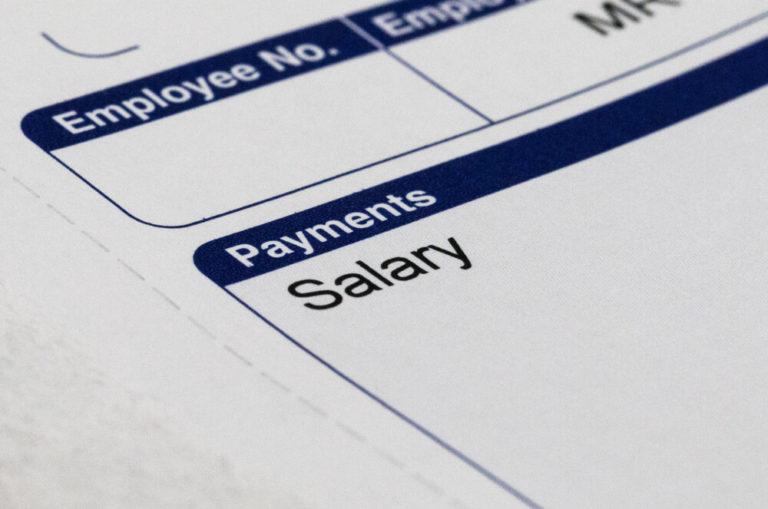
Navigating the financial landscape after settling a Trust Deed can be a daunting task, especially when considering the possibility of obtaining a mortgage. You may have concerns about how creditors and lenders view your application, given your previous experiences with debt recovery. Rest assured, you can still apply for a mortgage after a Trust Deed has been discharged, but it’s crucial to understand the necessary steps and be equipped with a thorough knowledge of the process.
As you emerge from the Trust Deed term, it’s important to recognise that your financial standing will have been affected, and approaching the mortgage application process with this in mind is essential. Being realistic about your situation and acknowledging the impact of the Trust Deed on your credit history enables you to take a proactive approach in dealing with potential challenges.
Before you start your mortgage hunt, it’s recommended that you spend some time improving your credit score and demonstrating to lenders that you are a reliable borrower. The path to securing a mortgage after a Trust Deed may be slightly more intricate, but with careful planning, perseverance, and determination, it is undoubtedly achievable.
Understanding Trust Deeds and Mortgages
Dynamics of a Trust Deed
A Trust Deed is a legally binding agreement between you and an insolvency practitioner (Trustee) to manage your unsecured debt. The Trustee will work out a repayment plan based on your income, disposable assets, and living costs, and distribute the repayments amongst your creditors. Trust Deeds typically last for 4 years and can be an effective debt solution for those facing serious debt problems.
Some key points to consider with Trust Deeds are:
- Trust Deeds are only available in Scotland.
- They require a minimum unsecured debt amount of £5,000.
- They are a form of Insolvency, which means that you are declaring that you cannot pay your debts in full.
- During the Trust Deed period, interest and charges on your debt are frozen.
- Upon completion, remaining unsecured debt is written off.
However, there might be some consequences to entering a Trust Deed:
- If you’re a homeowner, you may need to release equity from your property.
- Trust Deeds negatively impact your credit rating.
- Your Trust Deed will appear on the Register of Insolvencies.
When a Mortgage Comes After a Trust Deed
Applying for a mortgage after a Trust Deed can be challenging due to the impact on your credit rating. However, it’s not impossible. Here are a few essential points to consider:
- Be prepared to pay a larger deposit. Many lenders require at least a 20%-25% deposit. Higher deposits mean lower loan-to-value ratios, reducing the lender’s risk.
- Work with a broker who specialises in mortgages for individuals with adverse credit. They can help you navigate the market and find the most suitable mortgage product.
- Take steps after your Trust Deed discharge to rebuild your credit score. This can involve registering on the electoral roll, obtaining a credit-building credit card, and making timely repayments on loans and bills.
In terms of the legal aspects, there are two documents involved when obtaining a mortgage: the Declaration of Trust and the Deed of Trust. The Declaration of Trust sets out the legal ownership, including details about each party’s share. The Deed of Trust outlines the beneficial interest each party has in the property.
If other parties are involved, such as joint owners or parents contributing to the deposit, make sure to consult a solicitor to ensure the necessary legal documents are prepared and signed with their consent.
Obtaining a mortgage after a Trust Deed is possible, but it requires careful planning, rebuilding of credit, and potentially larger deposits. Remember to always consult a financial advisor or mortgage broker to determine the best course of action based on your personal circumstances.
Assessing Credit Health Post Trust Deed
Influence of a Trust Deed on Credit Rating
A Trust Deed can have a significant impact on your credit rating. After entering into a Trust Deed, your credit score may be greatly affected due to the fact that you have displayed financial difficulties. It is important to understand how your credit score is determined, which is based on the information contained in your credit file. This file is maintained by credit reference agencies, such as Experian, Equifax, and others.
Your credit file includes various information such as your credit history, debts, and how well you have been managing your credit accounts. A poor credit history is likely to result in a lower credit score, making it more challenging to borrow money from lenders.
Rebuilding Credit After a Trust Deed
1. Review your credit report: It’s crucial to regularly review your credit report to ensure all the information is up to date and accurate. Errors on your credit file can negatively impact your credit score. Get a copy of your credit report from the major credit reference agencies, and if you find any errors, contact the relevant agency to have them corrected.
2. Utilise credit builder products: There is a range of products available specifically designed to help you rebuild your credit rating after financial difficulties, including credit builder credit cards and loans. These typically carry high interest rates, but if used responsibly – by making payments on time and never exceeding your credit limit – they can demonstrate to lenders that you are a trustworthy borrower.
3. Limit lender searches: Each time you apply for credit, lenders conduct a search on your credit file. Having too many searches in a short period can indicate financial distress, which can further lower your credit rating. Only apply for credit when necessary and avoid making multiple applications in a short timeframe.
4. Maintain consistent payments: One of the key elements of rebuilding your credit is demonstrating to lenders that you can manage your debts responsibly. Ensure to make all your loan, credit card, and bills payments on time. This consistent repayment behaviour will help improve your credit history and, in turn, your credit rating.
5. Do not exceed credit limits: To show that you can manage your finances responsibly, make sure not to exceed the credit limits on your credit cards and other credit accounts. Utilising a lower percentage of your available credit will positively affect your credit score.
Rebuilding your credit rating after a Trust Deed can take time and effort, but by consistently managing your finances and adopting responsible financial habits, you can gradually improve your credit health, and increase your chances of obtaining a mortgage in the future.
Mortgage Application Process After a Trust Deed
Steps for Borrowers
- Ensure your Trust Deed is discharged: You need to have completed your Trust Deed and be fully discharged from it, typically after four years. Clear any remaining unsecured debts and obtain a certificate of discharge for your records.
- Rebuild your credit rating: Start rebuilding your credit by ensuring you’re on the electoral roll, obtaining a credit-builder credit card, and keeping up with your monthly payments. Paying utility bills in your name can also help to demonstrate financial stability.
- Save for a deposit: Lenders in Scotland may require a larger deposit from borrowers who have a history of Trust Deeds. It’s important to start saving as soon as possible. The more you save, the better your chances of securing a mortgage with favourable interest rates.
- Explore your mortgage options: Approach multiple banks and lenders to compare different mortgage offers and understand the interest rates, penalties, and charges associated with each.
- Enlist a mortgage broker: Engage a reputable, whole-of-market mortgage broker who is knowledgeable about the specific requirements for Scottish residents with a history of Trust Deed. Make sure your broker is registered with the Financial Conduct Authority.
Advice for Mortgage Brokers
Mortgage brokers assisting clients with a Trust Deed history should consider the following:
- Transparent financial assessment: Conduct a thorough and transparent financial assessment of your client’s circumstances to determine the risks and likelihood of mortgage repayments. Analyse their budget, ownership status, and current debt repayment schemes.
- Understand the unique Scottish property market: Be familiar with the specific rules and regulations surrounding property transactions in Scotland, such as the transfer of ownership, sale of property, and joint tenants’ rights.
- Offer solutions in line with the client’s risk profile: Look for mortgage offers that best suit your client’s profile, taking into account factors such as interest rates, monthly payment amounts, and potential penalties.
- Liaise with lenders in advance: Approach lenders to discuss the client’s background and discharged Trust Deed status, ensuring that the lender understands the risks involved in the application.
- Advise on improving the client’s application: Share tips and strategies on how your client can increase his or her chances of securing a mortgage, such as maintaining a strict budget, increasing savings, or opting for longer repayment terms.





